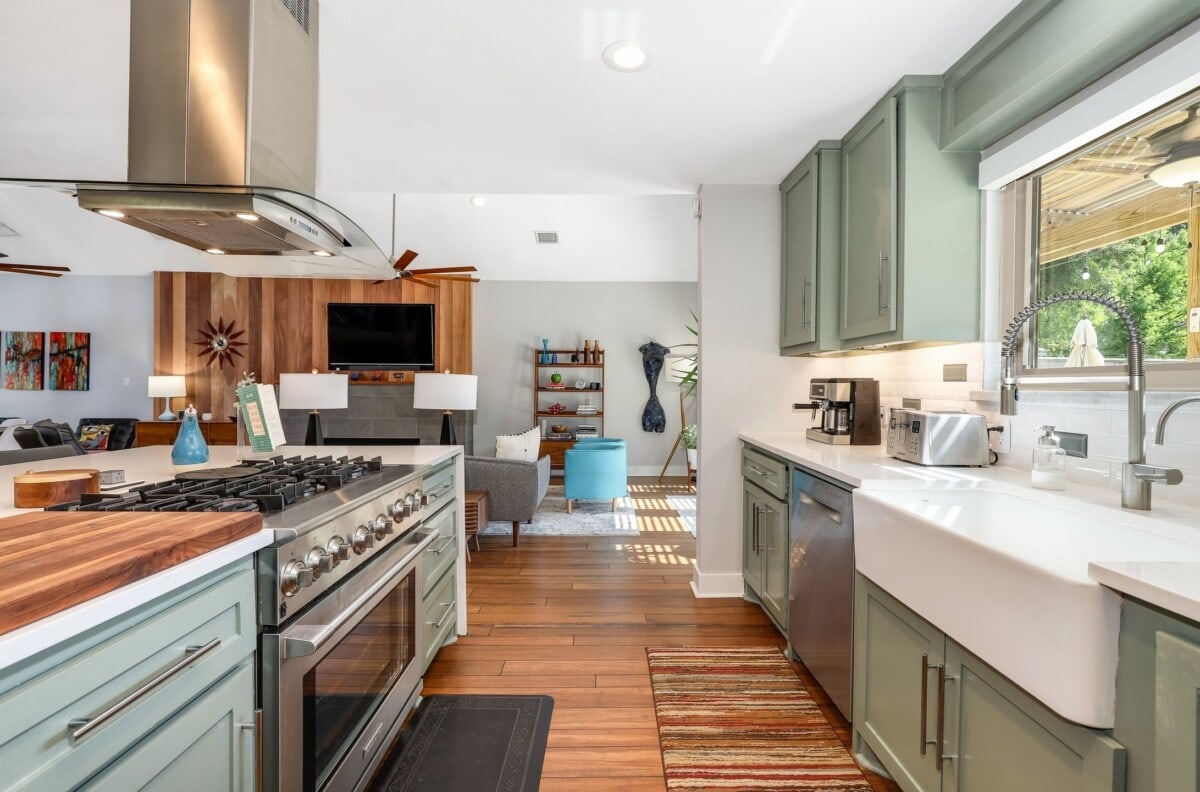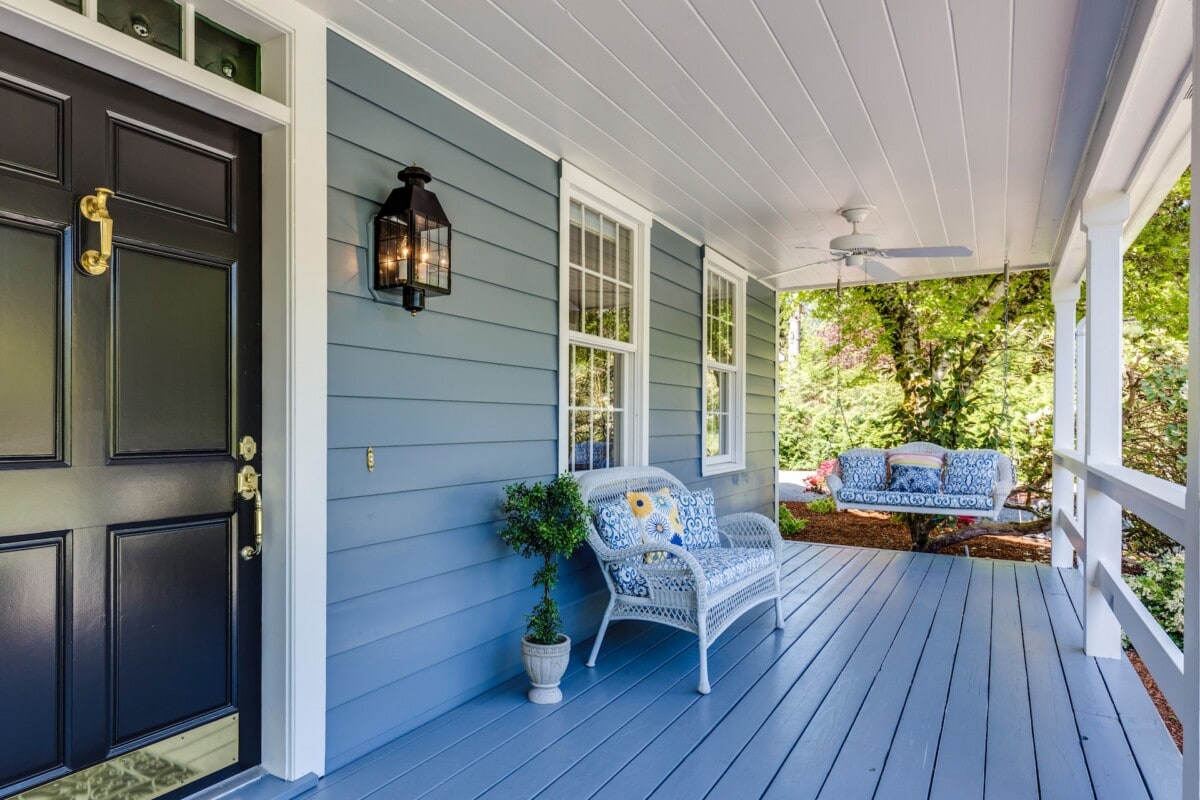Should I Lock in My Mortgage Rate Now That Rates Are Dropping?

Mortgage interest rates are always changing – moving up and down each day, even each hour. These quick changes can impact the amount you pay when you refinance or close on your mortgage. In early August 2024, interest rates dropped to 6.34%, their lowest level since April 2023. While rates are fluctuating, many experts anticipate that rates will continue to decline throughout the rest of the year. This makes the decision of whether to lock in your mortgage rate today particularly relevant.
In this article, we will examine why mortgage rates change, how locking in your mortgage works, and whether you should lock in your mortgage rate today.

What does it mean to lock in my interest rate?
When you shop for a mortgage, the lender will prepare a “mortgage loan offer,” which will detail the proposed loan rate, the loan term, and monthly payment amount if the loan is approved. When you receive this offer, the lender will ask if you want to “lock in” your interest rate. If you choose to lock in your rate, it will be guaranteed – or locked in – for a specific time frame, usually through your anticipated closing date.
Lenders offer rate locks to borrowers because interest rates often fluctuate between when you first submit your loan application and finally close on your home, often many weeks later. If you lock the rate and market interest rates increase, you still get to keep your lower rate. But you could lose out if you lock a rate and interest rates fall — unless your lender offers a “float down” option, more on that later.
When is the best time to lock in a rate?
1) When rates are on the rise or start to drop: Begin by researching current mortgage rate trends. With rates recently declining, it might be wise to lock in if you’re comfortable with the current rate. Additionally, if you’re asking, “Should I refinance my mortgage?”, now could be an opportune time to consider it, given the lower rates. However, it’s crucial to weigh the costs of refinancing against the potential savings to determine if it’s the right decision for you.
2) When the Federal Reserve is set to meet: The Federal Reserve board meets quarterly to assess the economy and determine if adjustments to the federal funds rate are necessary. Recently, investors believe the Fed may be done with aggressive measures to limit inflation, and as a result, they expect a gradual decline in mortgage rates through the end of the year.
3) When your budget is tight: Locking in your interest rate will allow you to set your budget and give you a clearer sense of your monthly mortgage payment.
4) When closing is set: If your closing date is mutually agreed to and you’re offered a competitive interest rate, it would be wise to lock in your rate. If your closing date is flexible or you’re uncertain about how delays will affect it, locking in a rate may not be worth it since you may have to pay for an extension.

How does locking in my mortgage rate work?
A rate lock freezes the proposed rate for an agreed-upon amount of time, typically 30 to 60 days. Let’s look at three different mortgage rate scenarios to see how locking in your mortgage rate can play out.
If rates go up
Mortgage rates can fluctuate, and even a slight increase can significantly impact your finances. For instance, a 0.5% rise in interest rates can add substantial costs over the life of your loan. On a $300,000, 30-year fixed-rate mortgage, a jump from 5% to 5.5% would increase your monthly payment by nearly $80, resulting in almost $30,000 more in interest paid over the loan term.
However, if you lock in your rate at 5% and rates rise to 5.5% before closing, your locked-in rate ensures that you’ll stick with the 5% rate, effectively saving you those extra thousands in interest.
If rates stay the same
Sometimes, you might lock in your mortgage rates, and from there, rates increase and decrease, finally settling down at closing in exactly the same place you locked in at. Keep in mind that a rate lock intends to protect you from an interest rate increase, so even if nothing changes, you have peace of mind through the process.
If rates go down
If interest rates drop before you close on your home, you might miss out on securing a lower rate, which isn’t ideal. However, some lenders offer a “float-down” option as part of your rate lock. This option allows you to take advantage of a lower rate if market conditions improve after you’ve locked in.
A float-down can be a valuable tool, but it often comes with additional fees or specific conditions, such as a minimum rate drop required to trigger the float-down. It’s important to understand the terms and costs associated with this option before committing.
Should I lock in my mortgage rate today?
Given the recent drop in mortgage rates and the possibility that rates might continue to decrease throughout the year, you might be wondering, “Should I lock in my mortgage rate today?” Every homebuyer has a unique financial situation. If you’re comfortable with your lender’s terms and don’t want to risk rates rising again, locking in now could be a wise decision. It’s essential to stay informed about current rate trends and discuss them with your lender to make an educated decision. If you’re ready to lock in your mortgage rate today, consider Bay Equity Home Loans, Redfin’s in-house mortgage partner, for expert guidance throughout the process.

Why do mortgage rates change?
The market influences mortgage interest rates. Let’s take a look at which specific market factors initiate these changes.
Supply and demand
Mortgage rates move in response to supply and demand. If homes are flying off the market, interest rates tend to increase. If the housing market slows down, rates decrease as lenders attempt to stimulate demand.
Economic changes
Interest rates tend to increase when the economy is doing well. If the economy slows, interest rates typically also drop, again, to stimulate spending.
Federal funds rate
All lenders determine their rates based on the “federal funds rate,” which is the rate at which lenders can borrow money. The Federal Reserve manages the federal funds rate in response to different economic indicators (such as rates of inflation and employment) as part of its mandate to maintain the stability of the nation’s financial system.
Mortgage-backed securities
Lenders often bundle their mortgages with other loans and sell them to investors as mortgage-backed securities. Changes to the price of these securities can change the interest rate on your mortgage.
Your credit score
This is the only factor influencing the interest rate that you can control, unless you buy-down your interest rate. An improved credit score – and cleaning up any errors on your credit history – will position you to get a better interest rate. If you have a few items to clean up on your credit, ask your lender for some advice on which ones will help improve your score the most.

How long does a rate lock last?
Mortgage interest rate locks typically range from 30 to 60 days. It would be best to find out how long it takes your lender to navigate the closing process on average in your area. If your lender has a backlog of applications that might cause a delay, ask to extend the deadline for your rate lock as long as possible.
You can help your mortgage application process along by being ready to provide your lender with all necessary documents, which include:
- Photo ID
- 2-years of income tax returns
- W2 from an employer for proof of income
- Bank account statements
If delays on your end cause the rate lock to expire, the lender may charge you a rate lock extension fee, while some lenders may split an extension fee. If the lender is the source of the delay, they will likely pay the extension fee.

FAQs about locking in your mortgage rate today
How much does it cost to lock in your interest rate?
As mentioned above, it’s common for lenders to offer free 30-day rate locks while some lenders extend free locks for 45 days or more. After that, the longer your rate is locked the more it will cost. So make sure to ask your lender about their fee for a rate lock. Keep in mind that the costs of locking in your rate will likely be recovered in savings over the loan’s lifetime if rates increase.
Can I unlock a mortgage rate if interest rates drop?
If you’ve already locked in your loan and the interest rate falls, some lenders offer a float-down option that allows you to switch to the new, lower rate, though you may need to pay an extra fee for this. If your lender doesn’t provide a float-down and rates have been trending down, you could withdraw your application and reapply for a new loan. However, this decision requires careful consideration, as it may involve additional costs for a new appraisal, credit check, and application processing, as well as added time to the lending process.
If reapplying delays your closing, you’ll need to consider the impact on the seller’s timeline and your own living arrangements, especially if you’ve already gone “mutual” on a house. While a rate decrease could save you thousands of dollars over time, it’s essential to weigh these savings against the upfront costs and the risk of breaching your contract due to delays.
What happens if my rate lock expires before closing?
If your rate lock expires before closing, your rate will align with the daily interest rate movement. When you lock in your rate, talk to your lender about their rate extension process so you stay well ahead of this deadline and understand their policy about lock extensions and any associated fees. If you have not caused delays by failing to provide the information they need, they may be more lenient and give you extra time without charging you for an extension.
The post Should I Lock in My Mortgage Rate Now That Rates Are Dropping? appeared first on Redfin | Real Estate Tips for Home Buying, Selling & More.
